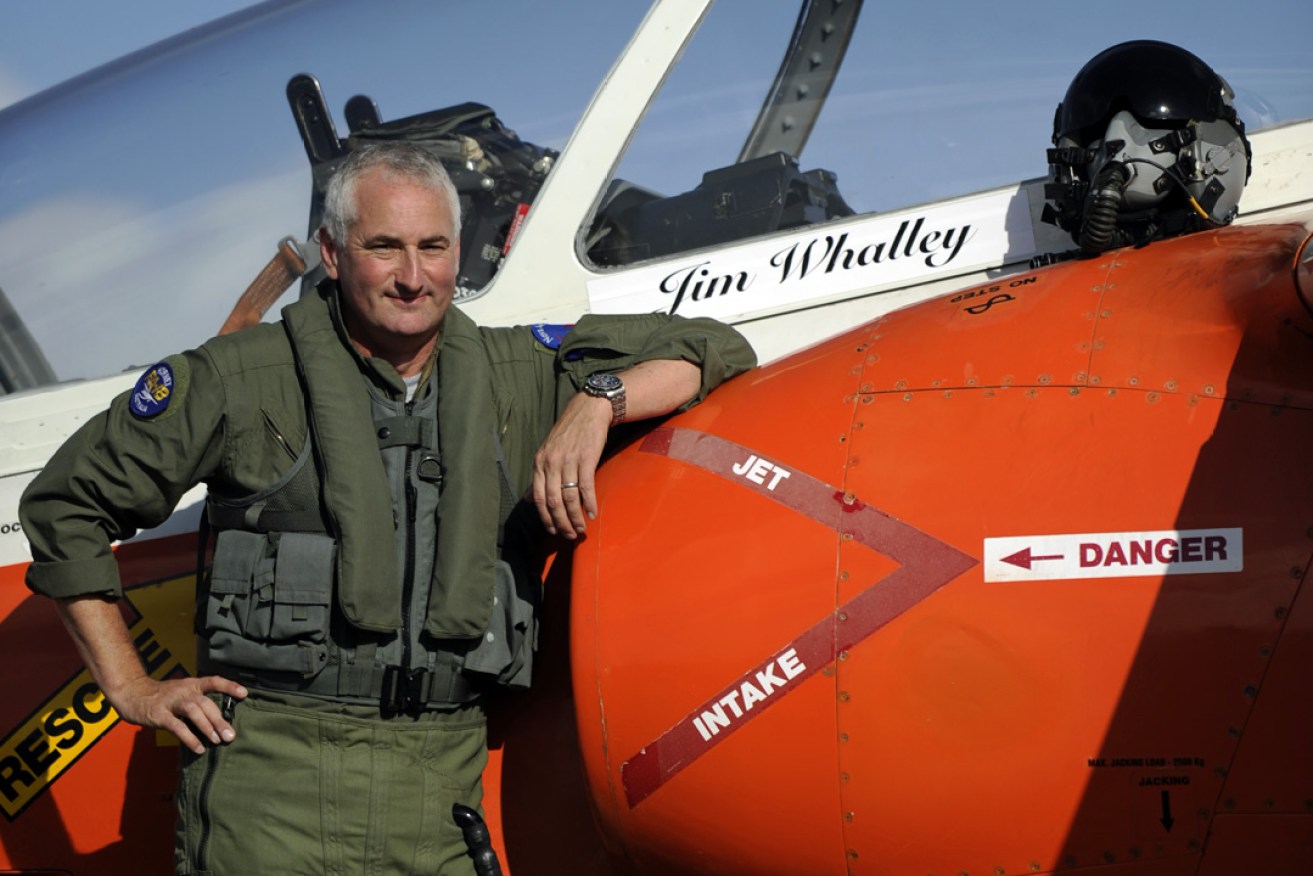Adelaide business heroes – and villains – in chief entrepreneur’s spotlight
South Australia’s chief entrepreneur Jim Whalley has vowed to make heroes of the state’s best business people, but has warned unethical operators: “If they do evil, I will be after them.”


South Australia's Chief Entrepreneur Jim Whalley is a former RAAF fighter pilot. Image: supplied.
Whalley, co-founder of defence industry company Nova Systems and a former RAAF fighter pilot, was appointed chief entrepreneur in August.
Since then, he has been leading the process of transforming much of the old Royal Adelaide Hospital site into an entrepreneurial innovation precinct.
His vision is to attract startup companies in defence, digital, space (the Australian Space Agency will also be hosted there) creative industries and, potentially, agribusiness to the site.
An “incubator” company will be selected to develop startup companies’ capabilities, wrap services around them and match them with potential investors.
Renewal SA will lead a separate process, said Whalley, to attract more established national and international businesses to use the site and to connect with local industry.
Beyond his role at the old RAH site – which has been rebranded as Lot 14 – Whalley says his job is to highlight the successes of the state’s best entrepreneurs – but also to call out bad behaviour when he sees it.
“I am really keen that we make heroes of entrepreneurs,” he said.
“They do create jobs, they put their wealth at risk, their houses at risk – it’s a lonely job, families are under stress when you do it.
“I’d like to see some people that do the right thing appearing on the front page of the paper.”
But he told InDaily he would also find a common cause with the media in exposing unethical businesspeople and practises if he became aware of them.
“If they do evil I will be after them, as you will be too, (as will) many of your colleagues (in the media),” said Whalley.
“If I’m going to make people heroes, there’s an obligation to act in a certain way.
“If you don’t pay your bills, if you treat your customers like shit, if you treat your employees like shit and don’t pay their superannuation and all that sort of stuff, I will be the one that calls you out.”
He added that he would like to counter dual cultural problems in the Adelaide business scene: “tall poppy syndrome”, which vilifies the most successful, and the tendency to turn people who fail in business ventures into “pariahs”.
My record is anything but spotless in terms of screw-ups.
“If someone does really well (it is thought that) they must have ripped someone off, or they’re a criminal – and if they fail, they’re a pariah,” said Whalley.
“We want to give people – I’m going to use the term – a ‘safe space’ to fail … where you’re not going to become a pariah if you do fail.”
Whalley said he had failed repeatedly in some of his own business ventures and that it was important to learn from the experience and keep going.
“Believe me, my record is anything but spotless in terms of screw-ups,” he said.
“I’ve done plenty of failure.
“In terms of people that have made serious screw-ups, I would beat everyone in my own organisation by an order of magnitude at least.”
He said he some ill-advised decisions had ended up costing him hundreds of thousands of dollars.
“We’ve bought companies that basically we expected to have significant market share and they didn’t – probably didn’t do enough due diligence,” he conceded.
“I’ve also bought companies that have really caused us problems … because we didn’t do the right ‘cultural’ due diligence.
“We had to sack people and that was a really, really painful experience, and that was entirely my fault because I did not read that.”
SA businesses ‘need to get a bit desperate’
Whalley said he believed huge opportunities existed right now in the growth industries being targeted at the old RAH site, but entrepreneurs needed to act with a sense of urgency.
“The thing that makes it easier right now is that we’ve got three years before we’re into another election cycle,” he said.
“If we can use that opportunity for people to be bipartisan and really just all push in one direction, that will be really, really good.
“But I think we’ve got that timeframe and I think we need to be a bit desperate to get things moving now. If we are not urgent we are going to miss opportunities.
“What worries me is life is really, really good here, but if we assume that it’s just going to continue to be good then I think we’ve got another thing coming.
“No-one innovates in paradise.”




